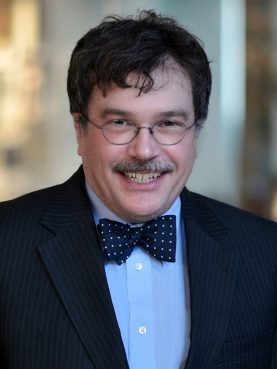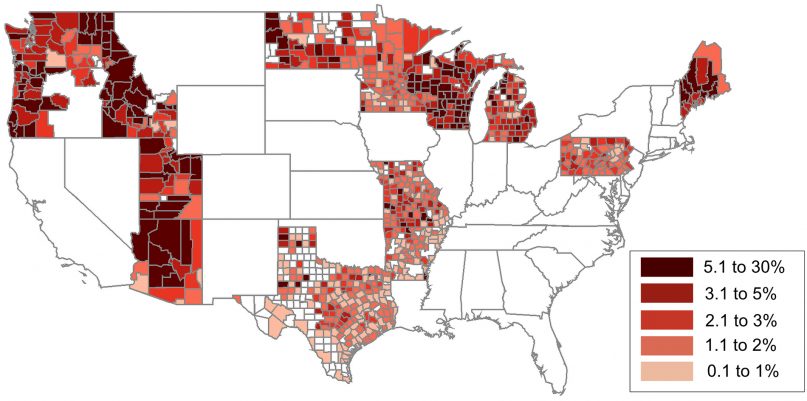(RNS) — For vaccine foes, Dr. Peter Hotez is the enemy.
The anti-vaccination movement is a social movement that Hotez, dean for the National School of Tropical Medicine at Baylor College of Medicine in Houston, says is dangerous and fueled by misinformation.
And it’s also growing, as he and his colleagues reported last year in an article in PLOS Medicine. More and more parents are choosing not to vaccinate their children, often for philosophical or religious reasons.
That’s led to outbreaks of measles in places such as Washington state.
Hotez wants that to change, which is why he supports efforts by state lawmakers in Washington and Oregon to remove personal or philosophical exemptions to vaccination rules for school-age children.
“We need a more robust system of pro-vaccine advocacy in this country,” he said. Hotez also wants major internet companies such as Google and Facebook to regulate sites with false information about vaccines.

In his book “Vaccines Did Not Cause Rachel’s Autism,” he tells his daughter’s story to examine the concerns of the anti-vaccine movement, addresses what he says are conspiracy theories around the issue and critiques the scientific community’s failure to effectively communicate the facts about vaccines and autism to the public.
“I started seeing a trend in Texas where thousands of kids weren’t getting vaccinated due to phony nonmedical exemption reasons, so it prompted me to write the book,” he said. “It’s made me public enemy No. 1.”
Currently, 18 states allow philosophical-belief vaccine nonmedical exemptions, known as NMEs. Washington, where there are 66 confirmed measles cases, is one of them.
According to the study in PLOS Medicine, titled “The State of the Antivaccine Movement in the United States,” in 12 of those 18 states, there’s been an upward trend of kindergartners enrolling in school with NMEs since 2009.
Washington was not listed as a state with an uptick in NMEs; however, Seattle and Spokane, as well as Portland, Ore., were identified as “hot spots,” meaning they are associated with counties having more than 400 nonvaccinated kindergartners and are vulnerable for an outbreak in vaccine-preventable diseases.
Currently, three separate efforts, two in Washington and one in Oregon, are gaining steam to ban or restrict nonmedical vaccine exemptions. House Bill 1638 in Washington would ban personal or philosophical exemptions specifically for the measles, mumps and rubella vaccine. A second bill, in the Senate, would ban personal or philosophical exemptions for all school-required vaccines. In Oregon, a bill is being drafted that would get rid of all nonmedical exemptions, including religious ones.

“Vaccinations don’t just protect the kids who are vaccinated, they protect others in the community who are at risk,” Washington Sen. Kevin Van De Wege, co-sponsor of Senate Bill 5841, said in a statement.
But the measures are being met with plenty of opposition.
Hundreds have turned up in Olympia, Wash., to protest hearings on the bills., including Mary Holland, a New York University Law School professor and activist.
According to The Washington Post, she said her son has a vaccine-related injury and she warned lawmakers that if the bill passes, many vaccine opponents will “move out of the state, or go underground, but they will not comply.”
Devony Audet, a mother of three living in Spokane, said her family won’t comply with new vaccination laws if they are passed.
“No city government or federal government can tell me what medical procedures are necessary for my children. That’s my choice. God made me their mother and I will not vaccinate (for MMR) even if it means my children cannot go to public schools,” she said.

She describes herself as “pro-informed choice,” rather than anti-vaccination, and said her children have some vaccinations, but not all of them.
“We weigh the pros and cons. What are the risks of the illnesses versus the risks from the vaccine itself?” she said. “MMR, absolutely not. MMR has more adverse effects, our research found.”
She believes measles and mumps aren’t terribly dangerous and can be treated quickly. The vaccines, she said, are much riskier.
“Make informed decisions,” she said. “God gave you a brain for a reason. Use it.”
Her oldest son, 12, has health issues and would qualify for a medical exemption. However, her other two children, 5 and 8, have nonmedical exemptions. Her family would home-school the children if the Washington legislation passes.
Audet herself wasn’t vaccinated until the fourth grade because her church — an Independent Baptist congregation — was against it.
“I never had the mumps, measles, I never had the chicken pox. I didn’t die,” she said. “All three of my children have had the chicken pox now, so I’m not worried. It’s not that big of a deal. We make it a big deal.”
In 2015, California removed the personal belief vaccine exemption after a measles outbreak at Disneyland. Vermont did the same.
“That’s what I’d like to see done in Washington and Oregon, and done here (in Texas),” Hotez said. “Any move toward that is welcome.”
He worries that if the measures pass, people will begin abusing the religious exemption.
“If you look at the major religions, I can’t think of any mainstream prohibitions against vaccines, maybe some sects or spinoffs,” he said. “These are important times where religious leaders need to speak out on behalf of vaccines. We need an interfaith statement on vaccines.”









